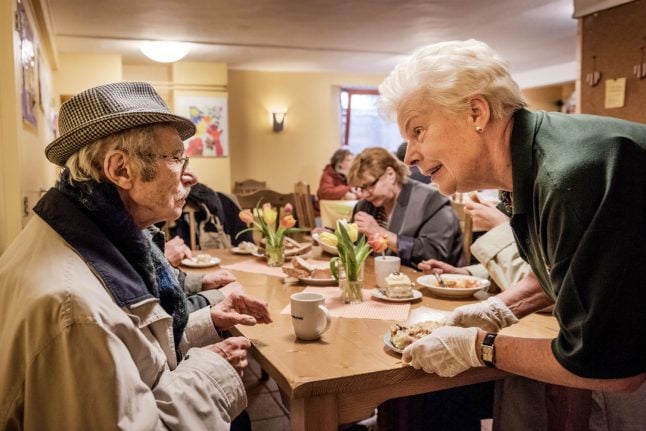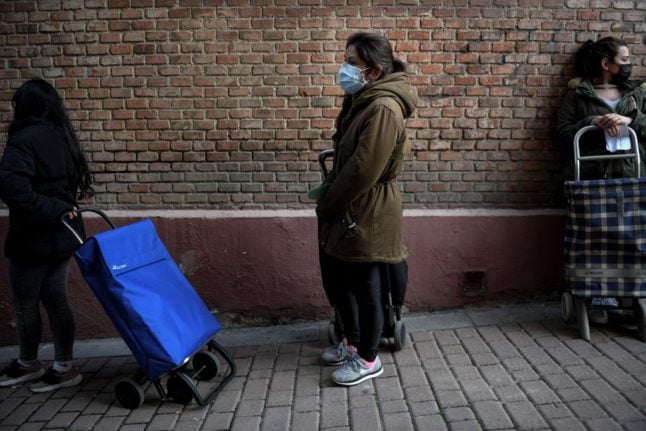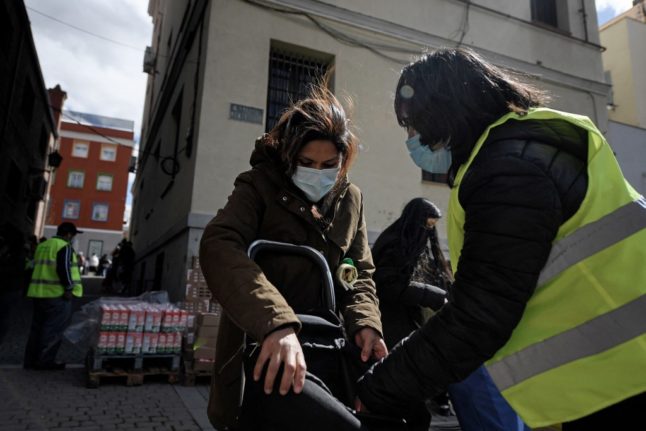The number of people using food banks in Germany has risen by 10 percent in a year, new figures show.
A total of 1.65 million people regularly used food banks within the last year, up from 1.5 million in the previous 12 months, according to figures published by the non-profit Tafel Deutschland e.V, Germany's umbrella organization for food banks.
The German Tafel (the German word for “table” which is used to refer to food banks) research found an even more dramatic rise in the number of older people seeking support.
They found 20 percent more pensioners – an extra 75,000 – accessed food bank services in the last year compared to the previous year.
It comes after a study published last week found more than one in five pensioners in Germany could face old-age poverty in 20 years.
The NGO, which has 947 food banks in Germany, has called for action.
“This development is alarming – and it is only the beginning,” warned chairman of the German Tafel, Jochen Brühl.
 Food banks collect food that would otherwise be thrown away. Photo: Dagmar Schwelle/Tafel Deutschland e.V.
Food banks collect food that would otherwise be thrown away. Photo: Dagmar Schwelle/Tafel Deutschland e.V.
“Old-age poverty will overrun us in the coming years. Politicians cannot wait any longer, they must act now. Far-reaching reforms and binding, interdepartmental goals are needed to combat poverty in Germany. The time for small steps is over.”
Who uses food banks in Germany?
People who’ve been unemployed for a long time make up the largest proportion (47 percent) of food bank users. They are followed by pensioners (26 percent) and asylum seekers (20 percent).
The increase in the number of children and young people accessing Tafeln (food banks) is also growing – almost 50,000 more young people were dependent on food support in the last year compared to the previous year.
Brühl said Germany was “systematically neglecting children”.
“Those who are poor as children have little chance of freeing themselves from the cycle of poverty,” he said.
READ ALSO: EXPLAINED: How Germany plans to fix its stark regional inequalities
'Immoral cycle of waste'
Food banks in Germany collect surplus food from traders and distribute it to people throughout the country with the help of around 60,000 volunteers.
Around 265,000 tons of unwanted food – that's 500 kg every minute – was recovered in the last year by the food bank association.
However, the amount could be even higher, because up to 18 million tons of food is thrown away every year in Germany. Yet food banks lack the cash to buy more refrigerated vehicles and storage facilities – and above all they need more volunteers.
As part of the UN's sustainability goals, Germany has committed itself to halving food waste by 2030. “From the point of view of food banks, we have reached a turning point,” said Brühl.
The organization is calling for financial support from the government in order to save more unwanted food and distribute it.
“We must stop the senseless, immoral cycle of waste and destruction – for social and ecological reasons,” said Brühl.
“As long as we in Germany throw away up to 18 million tonnes of food every year and, on the other hand, people are no longer able to pay for food at the end of the month, our commitment is bitterly necessary.”
READ ALSO: 'No one in Germany would go hungry if food banks didn't exist'





 Please whitelist us to continue reading.
Please whitelist us to continue reading.
Member comments